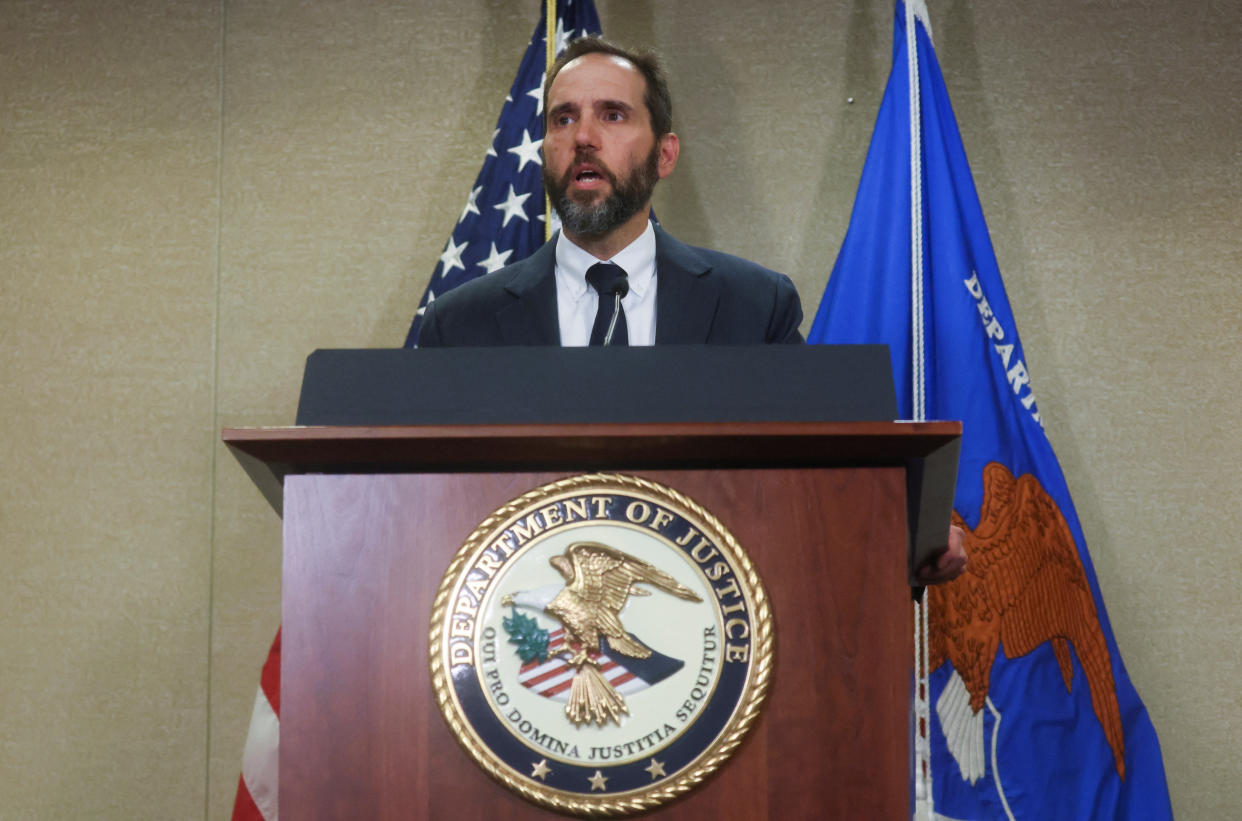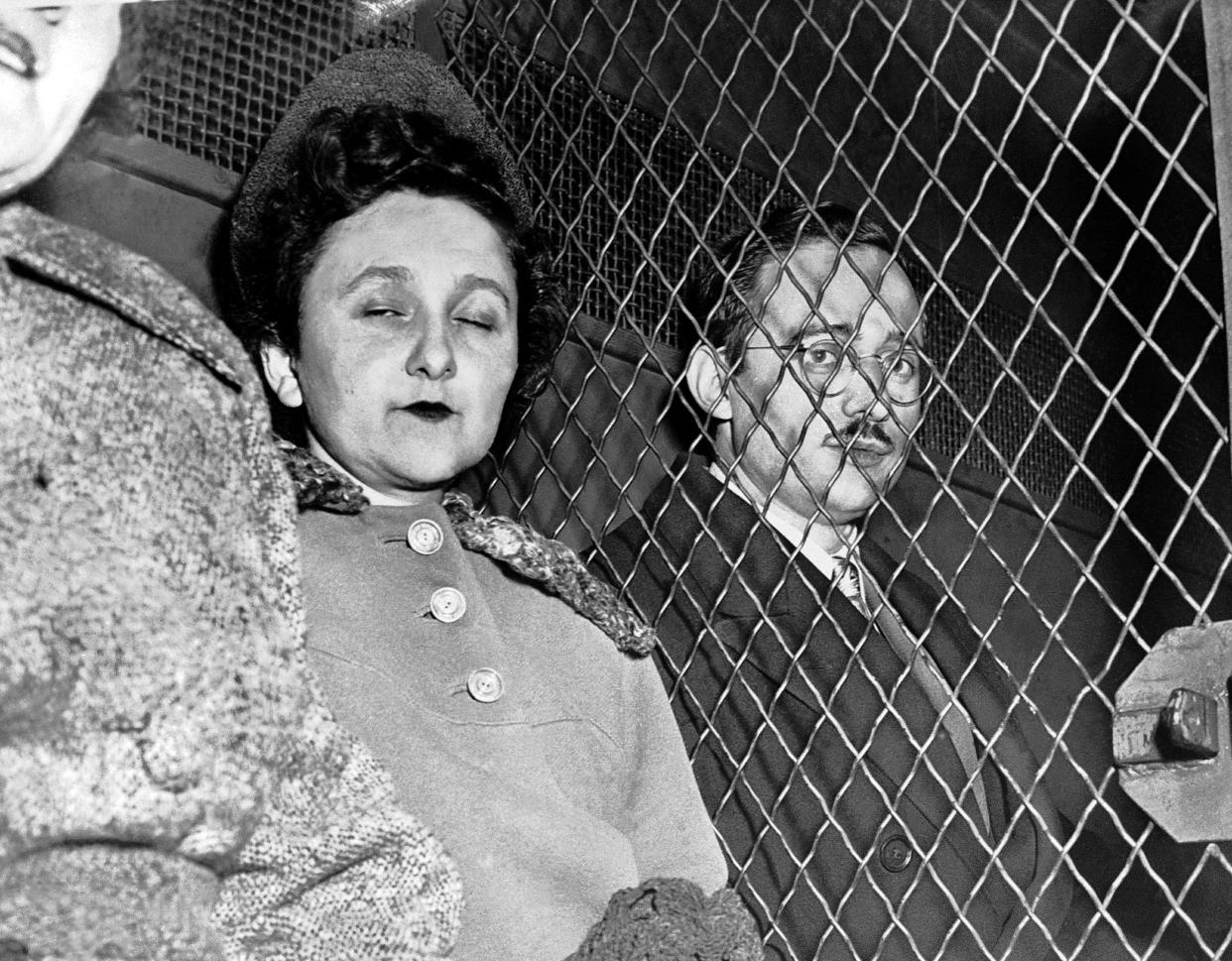Espionage Act: How Trump's case stacks up against other alleged violations

Many people have been charged and jailed under the Espionage Act since it was passed in 1917, as the U.S. entered World War I.
But not every case is a good comparison with the charges brought against former President Donald Trump for holding on to top-secret files after leaving office.
Some people have been jailed for many years, or even for life, under the Espionage Act. Trump’s case is not in that category. If convicted, Trump would likely face no more than a few years in prison, if he faces any time at all.
Trump is charged with 37 counts. Of these, 31 relate to the "willful retention of national defense information," which violates a portion of the Espionage Act. The other six counts relate to Trump’s alleged obstruction of the government’s attempts to retrieve these records.
What are famous cases involving the Espionage Act?
The most severe penalties for those convicted under the Espionage Act have been meted out to those who passed classified material to foreign adversaries.
Take Julius and Ethel Rosenberg, the New York couple convicted in 1951 of overseeing a spy ring for the Soviet Union that exposed top-secret details about U.S. weapons systems, including the nascent nuclear weapons program.

With the help of the federal prosecutor Roy Cohn, who became a close Trump ally decades later, the Rosenbergs were executed in 1953 in a case that aroused strong partisan passions and in Ethel's case, remains controversial.
Or take Edward Snowden, the former U.S. government employee who leaked highly classified files from the National Security Agency about the U.S. surveillance apparatus to a group of journalists. Snowden fled the country and is now a citizen of Russia, but would face up to 30 years in prison if he were to face trial in the U.S.
Did the Trump administration prosecute people under the Espionage Act?
Absolutely. In fact, many of the Espionage Act cases cited by special counsel Jack Smith and his team were prosecuted by Trump’s Justice Department.
In 2019, Harold Thomas Martin was sentenced to nine years in prison for “willful retention of national defense information” at his home in Maryland, while working as a contractor at the National Security Agency.
Authorities were not sure whether Martin leaked any of the classified material, but he received a severe sentence because the U.S. government estimated he took home massive amounts of material – much of it top secret – over the course of 20 years.
In 2020, Ahmedelhadi Yassin Serageldin — an elderly Raytheon systems engineer in Massachusetts — was sentenced to 18 months in prison for “illegally retaining national defense information.” Serageldin was found guilty of possessing five documents labeled “secret.”
In the five cases cited by the government for comparison with Trump’s, the average sentence was just over four years, Lawfare noted. But all five defendants pleaded guilty, which reduced their penalty.

What about Hillary Clinton and David Petraeus?
Some very well-known figures in recent times have been accused of violating the Espionage Act, but were not jailed, as in the case of former Gen. David Petraeus.
After it was revealed that he had shared secret material with his biographer, with whom he was also having an affair, Petraeus stepped down as director of the CIA. Federal prosecutors considered charging Petraeus under the Espionage Act before allowing him to plead guilty to a misdemeanor charge that carried no prison time.
Others, such as Clinton, the former secretary of state, have been reprimanded for carelessness with classified material. Clinton had used a private email server to send and store messages that sometimes contained secret information.
A few months after the Petraeus sentencing, then-FBI Director James Comey issued a public rebuke to Clinton.
Comey said Clinton and her colleagues had been “extremely careless in their handling of very sensitive, highly classified information.” However, the Justice Department ultimately did not pursue a case against Clinton.
Trump allies have accused the Department of Justice of applying different standards of justice to Trump. But the Associated Press notes that a myriad differences distinguish what Clinton did from what Trump is accused of doing.
Smith, the special counsel, singles out a few key details in Trump’s case that distinguish it from Clinton’s case. Trump is accused of carelessness in holding on to state secrets of the greatest sensitivity, but also of refusing to cooperate with the government when asked to return these documents.
The legal website Lawfare put it this way: “In a number of respects, how Trump and his staff responded to this subpoena forms” the heart of the government’s case against the former president.

